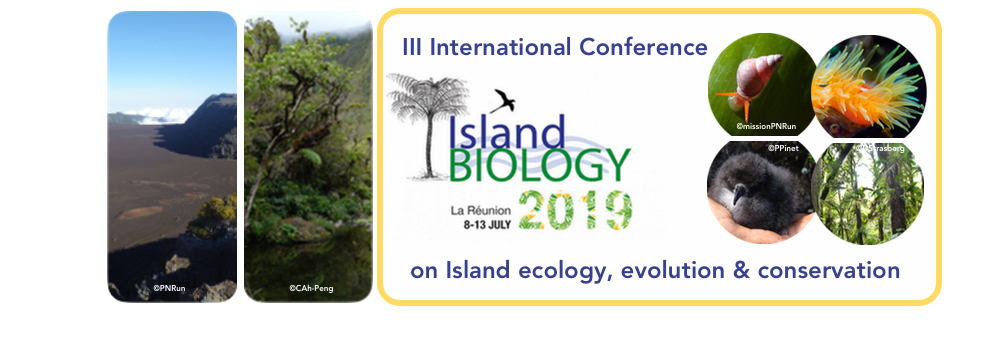Plants and animals from island archipelagos often display a specific phylogeographic pattern, called the progression rule: their current biogeography along the island chronosequence reflects their past evolutionary history of repeated migration events followed by allopatric speciation and radiation. While the progression rule has been well documented in macroorganisms, whether the microorganisms associated with these hosts -- their microbiota – also follow the progression rule remains unclear. In addition to dispersal ability and mode of diversification, the biogeography of the microbiota on island archipelagos will depend on mode of transmission, i.e. whether the microbes are independently acquired from the environment during the life of their hosts (i.e. environmental acquisition), transmitted across populations or species by host-switch (i.e. horizontal transmission), or transmitted across generations associated with their hosts (i.e. vertical transmission).
Here, we aim to document and explain phylogeographic patterns of the arthropod host associated microbiota on island archipelagos. First, we build upon a model that we recently developed for characterizing symbiont inheritance during host-microbiota evolution. In this model, microbial sequences evolve on a fixed host phylogeny; they are vertically transmitted and can experience horizontal host-switches. Adjusting this model to microbial sequence alignments mapped to host phylogenies allows studying microbial modes of inheritance. We further develop this model in order to account for the geographical distribution of host species on islands in the process of vertical transmission and host-switches. Second, we analyze gut microbiota data of Ariamnesspiders. These spiders experienced a recent adaptive radiation along the Hawaiian archipelago. We describe the microbiota's phylogeographic pattern, assess whether it follows the progression rule, and attempt to explain the phylogeographic pattern by analyzing modes of inheritance using our model. Finally, we discuss how modes of inheritance of the microbiota could impact host evolution in the context of island archipelagos.

 PDF version
PDF version
